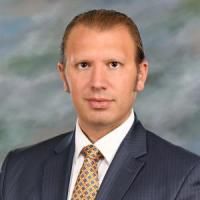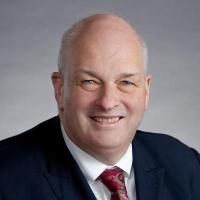Examination of the Economic Burden of Frailty in Patients With Adult Spinal Deformity Undergoing Surgical Intervention.
Date
2022-01
Journal Title
Journal ISSN
Volume Title
Repository Usage Stats
views
downloads
Citation Stats
Attention Stats
Abstract
Background
With increasing interest in cost optimization, costs of adult spinal deformity (ASD) surgery intersections with frailty merit investigation.Objective
To investigate costs associated with ASD and frailty.Methods
Patients with ASD (scoliosis ≥20°, sagittal vertical axis [SVA] ≥5 cm, pelvic tilt ≥ 25°, or thoracic kyphosis ≥ 60°) with baseline and 2-yr radiographic data were included. Patients were severely frail (SF), frail (F), or not frail (NF). Utility data were converted from Oswestry Disability Index to Short-Form Six-Dimension. Quality-adjusted life years (QALYs) used 3% rate for decline to life expectancy. Costs were calculated using PearlDiver. Loss of work costs were based on SRS-22rQ9 and US Bureau of Labor Statistics. Accounting for complications, length of stay, revisions, and death, cost per QALY at 2 yr and life expectancy were calculated.Results
Five hundred ninety-two patients with ASD were included (59.8 ± 14.0 yr, 80% F, body mass index: 27.7 ± 6.0 kg/m2, Adult Spinal Deformity-Frailty Index: 3.3 ± 1.6, and Charlson Comorbidity Index: 1.8 ± 1.7). The average blood loss was 1569.3 mL, and the operative time was 376.6 min, with 63% undergoing osteotomy and 54% decompression. 69.3% had a posterior-only approach, 30% combined, and 0.7% anterior-only. 4.7% were SF, 22.3% F, and 73.0% NF. At baseline, 104 were unemployed losing $971.38 weekly. After 1 yr, 62 remained unemployed losing $50 508.64 yearly. With propensity score matching for baseline SVA, cost of ASD surgery at 2 yr for F/SF was greater than that for NF ($81 347 vs $69 722). Cost per QALY was higher for F/SF at 2 yr than that for NF ($436 473 vs $430 437). At life expectancy, cost per QALY differences became comparable ($58 965 vs $58 149).Conclusion
Despite greater initial cost, F and SF patients show greater improvement. Cost per QALY for NF and F patients becomes similar at life expectancy.Type
Department
Description
Provenance
Subjects
Citation
Permalink
Published Version (Please cite this version)
Publication Info
Passias, Peter G, Waleed Ahmad, Nicholas Kummer, Renaud Lafage, Virginie Lafage, Khaled Kebaish, Alan Daniels, Eric Klineberg, et al. (2022). Examination of the Economic Burden of Frailty in Patients With Adult Spinal Deformity Undergoing Surgical Intervention. Neurosurgery, 90(1). pp. 148–153. 10.1227/neu.0000000000001756 Retrieved from https://hdl.handle.net/10161/28054.
This is constructed from limited available data and may be imprecise. To cite this article, please review & use the official citation provided by the journal.
Collections
Scholars@Duke

Peter Passias
Throughout my medical career, I have remained dedicated to improving my patients' quality of life. As a specialist in adult cervical and spinal deformity surgery, I understand the significant impact our interventions have on individuals suffering from debilitating pain and physical and mental health challenges. Spinal deformity surgery merges the complexities of spinal biomechanics with the needs of an aging population. My research focuses on spinal alignment, biomechanics, innovative surgical techniques, and health economics to ensure value-based care that enhances patient outcomes.

Christopher Ignatius Shaffrey
I have more than 25 years of experience treating patients of all ages with spinal disorders. I have had an interest in the management of spinal disorders since starting my medical education. I performed residencies in both orthopaedic surgery and neurosurgery to gain a comprehensive understanding of the entire range of spinal disorders. My goal has been to find innovative ways to manage the range of spinal conditions, straightforward to complex. I have a focus on managing patients with complex spinal disorders. My patient evaluation and management philosophy is to provide engaged, compassionate care that focuses on providing the simplest and least aggressive treatment option for a particular condition. In many cases, non-operative treatment options exist to improve a patient’s symptoms. I have been actively engaged in clinical research to find the best ways to manage spinal disorders in order to achieve better results with fewer complications.
Unless otherwise indicated, scholarly articles published by Duke faculty members are made available here with a CC-BY-NC (Creative Commons Attribution Non-Commercial) license, as enabled by the Duke Open Access Policy. If you wish to use the materials in ways not already permitted under CC-BY-NC, please consult the copyright owner. Other materials are made available here through the author’s grant of a non-exclusive license to make their work openly accessible.
